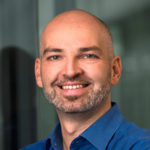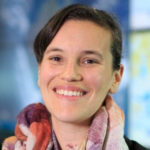Communicating Science in a Post-Normal World

Speaker: Professor Mike S. Schäfer
Professor of Science Communication, Department of Communications & Media Research
Director, Center for Higher Education and Science Studies (CHESS)
University of Zurich
Communication and dialogue between science and society are important for both sides. Science informs individual and collective decisions, while social context and social needs guide the direction of scientific enquiry.
But the science communication ecosystem is changing: Science is growing, and fields like genome editing, artificial intelligence or climate science are turning into “post-normal science”, fields with rapid development that initiate public debates and raise ethical issues. At the same time, the communicators of science are changing, with science journalism in decline, strategic communication expanding and digital media empowering users to engage in science communication as well. As a result, public perceptions of science have shifted, with trust in science seemingly eroding, “alternative facts” gaining in importance, and populist movements finding traction.
Hear a keynote address from Professor Mike Schäfer, who will then join panellists Professor David Karoly and Dr Linden Ashcroft to explore this process, highlight the challenges and identify future directions for science communication.
About the Speaker
 Dr. Mike S. Schäfer is Professor of Science Communication with the University of Zurich’s Department of Communications and Media Research. He is also Director of the University’s Center for Higher Education and Science Studies (CHESS) and of the AGORA commission at the Swiss National Science Foundation. His research focuses on science communication, online communication and public sphere theory, issues on which he has published widely.
Dr. Mike S. Schäfer is Professor of Science Communication with the University of Zurich’s Department of Communications and Media Research. He is also Director of the University’s Center for Higher Education and Science Studies (CHESS) and of the AGORA commission at the Swiss National Science Foundation. His research focuses on science communication, online communication and public sphere theory, issues on which he has published widely.
The Panellists:

 Professor David Karoly: Leader, Earth Systems & Climate Change Hub, National Environmental Science Program, CSIRO
Professor David Karoly: Leader, Earth Systems & Climate Change Hub, National Environmental Science Program, CSIRO
Dr Linden Ashcroft: Lecturer in Climate Science & Science Communication, School of Earth Science, The University of Melbourne
A part of the ‘Media Matters’ seminar series, funded by the Monash University School of Media, Film and Journalism.






